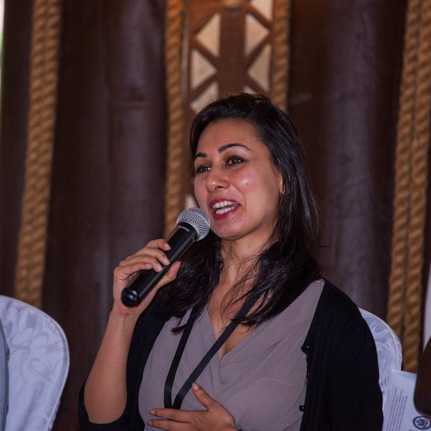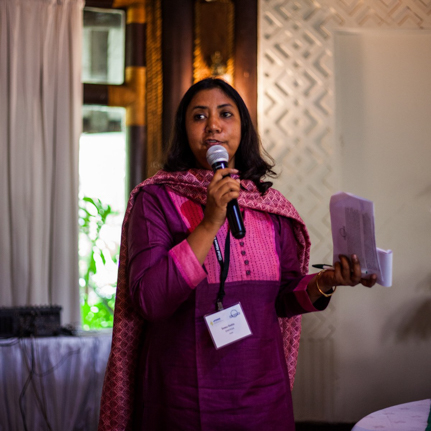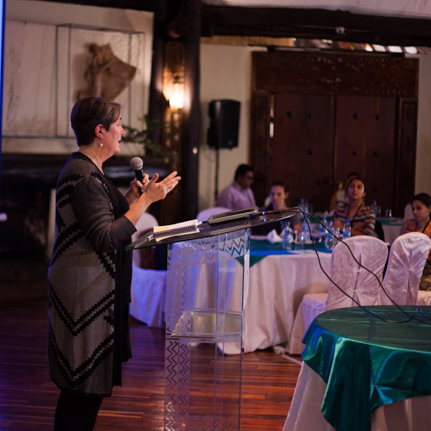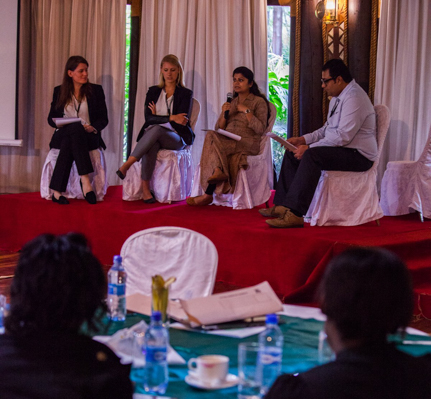WEEW2017: Advancing energy entrepreneurship and women’s empowerment
From February 14-16, 2017 the Alliance and the wPower Hub hosted an interactive workshop on women’s energy entrepreneurship in Nairobi, Kenya. The event brought together nearly 100 people from 14 countries in Sub Saharan Africa, Asia, Latin America, North America, and Europe to discuss best practices and key challenges for scaling women’s entrepreneurship in the household energy sector globally. Over the course of two and a half days, practitioners, researchers, policy makers, donors, and entrepreneurs from over 65 organizations came together to share the latest research, innovative approaches, and technological solutions that the sector is employing, and a significant amount of time was dedicated to strategic discussions to understand the critical gaps that remain and how the sector can work towards advancing energy entrepreneurship and women’s empowerment.
Our thematic sessions reflected on the best practices outlined in the Alliance’s Resource Guide for Scaling Adoption of Clean Cooking Solutions through Women’s Empowerment, which was published in 2013. Over the course of the workshop, participants reflected on best practices, built upon them, captured the major successes and challenges that partners have experienced in their work, and identifed the critical areas that we should focus on moving forward.
Following the workshop, the Alliance will work with wPOWER partners to publish a summary of the findings and recommendations from these strategic discussions that can be shared more broadly and used to enhance the sector.
Key themes:
- What drives women towards entrepreneurship in the clean energy sector? Women get involved for different reasons, but there is often a personal connection to the issues and a desire for change in their communities. Women also recognize clean energy products as a strong business opportunity – a chance to make a profit by helping their communities gain access to essential life-saving products.
- Mentoring & coaching: Simply training women isn’t enough. There needs to be an increased focus on mentorship and coaching is key to the success of both women CEOs and micro-entrepreneurs. We need to figure out how mentoring can be offered as a core component of women’s entrepreneurship programs, and include it in program design, budget, and implementation.
- Engaging men: We discussed the importance of engaging men and how women entrepreneurs can’t be successful without the support of their families, social networks, and communities. We heard from women CEOs and micro-entrepreneurs about the importance of engaging in dialogue with men in the community to ensure support for women-led businesses. If men are informed and consulted, they are more likely to support women in their business pursuits rather than serve as a road block or challenge
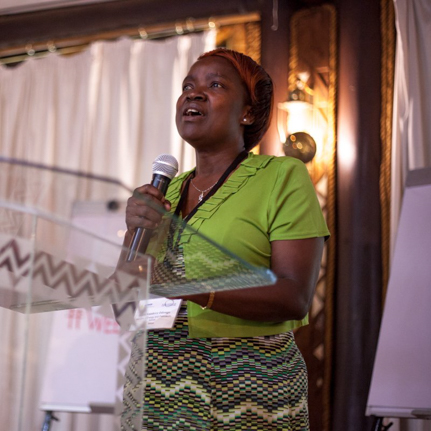 Faith Wandera-Odongo, Deputy Director of Renewable Energy, Ministry of Energy and Petroleum Kenya
Faith Wandera-Odongo, Deputy Director of Renewable Energy, Ministry of Energy and Petroleum Kenya- Empowerment and agency: Women need more than just basic business skills; they need leadership and empowerment skills to give them confidence and to further advance their businesses. Empowerment and leadership methodologies have been developed, tested, and measured and this should be a core part of the sector’s strategy moving forward. Many speakers emphasized the importance of grit, and how you must be persistent to be successful and to never give up, and without the confidence or leadership skills to do so, it can be particularly challenging for women to stay engaged in the energy sector when they have many other competing priorities.
- Innovations: There was a focus on how we engage women entrepreneurs through different technologies and innovative approaches. Living Goods and the Paradigm Project spoke about recruitment, retention, and performance management of women entrepreneurs. Paradigm emphasized how we should take the time to share more about our challenges and failures so that we can learn from other’s experiences. Some examples of innovative practices included voice messaging systems, whatsapp groups, and results based financing. Others also mentioned the value in working with schools to do education, training, and product marketing with students, their families and communities.

